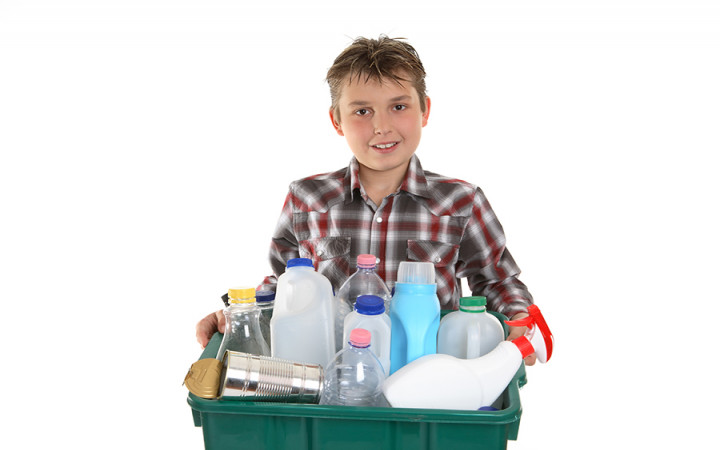Today’s Wonder of the Day was inspired by Andre. Andre Wonders, “What if we could recycle everything?” Thanks for WONDERing with us, Andre!
After a long, hot soccer practice, you arrive home and immediately raid the refrigerator. You grab a plastic bottle of water and guzzle it down in just a few gulps. Still thirsty, you reach for another plastic bottle and chug it quickly.
Before hitting the shower, what do you do with those empty plastic bottles? Do you pitch them into the trash? Or do you instead throw them into a recycling bin?
Hopefully, the area where you live has a robust recycling program. Learning to reduce, reuse, and recycle helps you to live a more sustainable, "green" life by conserving resources.
Depending upon your local trash and recycling facilities, you may be able to recycle as few as a couple types of items to as many as several dozen types of items. From a purely scientific standpoint, just about every material can be broken down and recycled.
In the United States, what actually gets recycled is dictated by economics. If the cost of a recycled material exceeds that of new material, then that material won't likely get recycled. In the absence of regulations requiring recycling, economics dictates that people will simply buy cheaper new material rather than more expensive recycled material.
The price of recycled material is largely determined by what it's made of. Newspapers, aluminum cans, plastic bottles, and steel cans can usually be recycled cheaply and easily, because they're made mostly of one material, such as wood pulp, aluminum, plastic, or steel.
Other items can be much more complicated. For example, rubber tires can't be converted back to simple rubber, because they undergo a chemical change in the manufacturing process. Likewise, electronic devices aren't easily recycled, because they consist of so many different types of materials that aren't easily separated.
Wouldn't it be great if everything could be recycled, though? Could you imagine living in a world where no trash was generated? Is it even possible to generate zero waste?
While it's still basically impossible to generate absolutely zero waste, that is the ambitious goal of Kamikatsu, a small town in southwestern Japan. Since 2003, the town has on a strict zero-waste program.
Residents of Kamikatsu sort their garbage into over 30 different types of recyclable waste. They also compost food scraps and other biodegradable materials. Their efforts have been very successful. Currently, about 80% of the town's garbage is reused, recycled, or composted.
Even if it's impossible to reach the point of having zero waste, zero-waste program advocates note that the process has clear environmental, economic, and social benefits. Major cities in the United States, including San Diego and New York City, have announced plans to move toward zero waste in the next 15-20 years.




